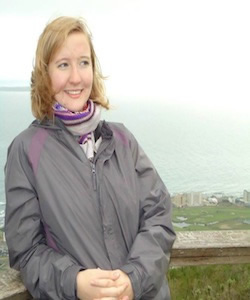On September 24, South Africa celebrates National Heritage Day. When we asked around, none of our South African friends seemed to know why, or even that it was still called National Heritage Day, as it is known more commonly by Braai Day. This is, as one South African explained, because the only thing that all of South Africa’s cultures and ethnicities have in common is braaing, or cooking meat over fire. In South Africa, heritage is often as sacred as it is controversial, and my experiences celebrating the day gave me insight into the very current and real struggle for South African unity.
Our celebration of Heritage Day began late; with no classes or work we had time for a leisurely breakfast in the deserted school cafeteria from which we watched the mass exodus of students in khakis and sun dresses who were headed home for a braai with their family. A few groups of students were braaing in the residence, but the temptation of music and food at a local Heritage Day festival lured us out into the sunny streets of Stellenbosch. The festival was crowded with tents selling braai sausages, samosas, and Cape Malay curry, and a band sang a mix of Afrikkans, Xhosa, and English songs. Interestingly, there were several private braais going on simultaneously in the festival, large tents bustling with food and people right in the middle of the park that were invitation only. As we relaxed in the shade with marshmallow cupcakes, I had time to reflect.
September 24th used to be significant in South Africa as Shaka Day (in memory of an important Zulu king by that name) that celebrated the unification of the Zulu peoples. In the 1990s, the holiday was adopted to give all South Africans the opportunity to celebrate their cultural identity as members of the “rainbow nation,” a nation of distinct and individual groups that together make a beautiful and diverse spectrum. The adoption of the day was met with some resistance, and there was significant effort to change the official name to National Braai Day, in an effort to honor South Africa’s culinary history of informal backyard barbeques.
The fact that most of the South African students I asked knew the holiday as Braai Day was curious. Even the word braai, which is an Afrikaans word, betrays a lack of representation of South Africa’s many cultures. Afrikaans is generally considered the “language of oppression” as it was the language of choice for the apartheid government, and since 1994, the new South African government has recognized eleven official languages, using English as the language of government.
The word choice of students I asked, the private braais at the festival, and the conflict at the heart Heritage Day itself share a common root, and it is one that I struggled at first to understand. Heritage Day is a day to celebrate the smallest unit of South African society, family, and culture. It’s not a day for diverse communities to come together, but an introspective occasion for families and friends to practice and preserve common traditions. Throughout different South African cultures, even the idea of heritage is different, as it’s not just dates and family trees, but language, music, dance, religion, politics, and yes, even cuisine. What I was first understanding as a rejection of the idea of celebrating heritage and diversity was really just a desire to name and celebrate the day in a way that respects each individual heritage.
I had a friend ask me how similar Heritage Day is to the Fourth of July in America, and I couldn’t properly express how different they are. Where the Fourth in the United States is about coming together as a nation, where all that divides us is dissolved in sheets of stars and stripes and bursts of fireworks, Heritage Day is about straightening and refining the lines of a rainbow and perfecting the individual shades of culture until they are pure. Celebrating Heritage Day I learned a very different way to experience nationalism, one where the whole is less important than the parts. I found in South Africa a country that did not manage or embrace diversity, but that required it, to be whole.

